Webinar: Addressing Uncertainty in Coastal Resilience Building
Addressing Uncertainty in Coastal Resilience Building
The Future Proofing Water and Climate Adaptation IPDC webinar series continues this Fall. Featuring action, political will, and financing for climate adaptation from deltas, coasts, and small islands.
LEVERAGING WATER RESOURCE MANAGEMENT FOR CLIMATE ADAPTATION
‘Futureproofing: Water and Climate Adaptation’ is a webinar series focused on adaptation strategy, practices, and financing for coastal areas, including islands and deltas. The series is designed to support the ambition of the International Panel on Deltas and Coastal Areas - to build capacity for effective adaptation planning, governance, and finance – through online knowledge sharing. The webinars consist of expert presentations and panel discussions.
The first Fall webinar, ‘Addressing Uncertainty in Coastal Resilience Building’, showcases coastal adaptation projects to frame how future-oriented planning and risk reduction can support communities and economic resilience. This webinar took place on Tuesday, Oct 17.
CLIMATE CHANGE IMPACTS EXPERIENCED THROUGH WATER
As the impacts of climate change continue to intensify, coastal flooding risk will increase, affecting the lives of hundreds of millions of people and putting infrastructure valued between US$7.9 - 12.7 trillion. Globally, 40% of the population lives within 100 km of the coast, and 11% live in low-lying coastal areas, where the impacts of sea level rise could be felt as soon as 2050(1). Accelerating adaptation efforts is essential to protect people, landscapes, economies, and even the very existence of some islands and deltaic coasts.
Drinking water quality and food security are threatened by climate change and flooding events. Moreover, marine transportation and ocean tourism are trillion-dollar industries (2). Without climate adaptation measures, damage to infrastructure, losses in crop production, and reduced fishing yields could cause average GDP losses of up to 19.5 percent in the world's deltas (3) similarly, it is estimated that flooding due to climate change could affect 20% of global GDP (4).
ACCELERATING KNOWLEDGE SHARING: THE IPDC AND THE WATER ADAPTATION COMMUNITY
It is widely accepted that coastal climate adaptation is complex. Innovation across financial, technical, and governance sectors is essential to accelerate the necessary shifts in policy, planning, and investments to protect against unavoidable climate impacts. Sharing knowledge of good practices in climate assessment, planning, financing, and implementation will support adaptation efforts across the globe.
Contributing to this effort, GCA’s Water Adaptation Community connects and supports a wide range of practitioners to exchange knowledge. The members are individuals working in various roles, from city planning to climate change management, and from water governance to water for food, drinking, related economics, and financing. The Water Adaptation Community facilitators broker knowledge from the community members to national and international policymakers, through a partnership with the International Panel on Deltas (IPDC) and Coastal Areas. Researchers and practitioners can bring their knowledge and experiences to the IPDC by becoming active members of the Water Adaptation Community.
The International Panel on Deltas and Coastal Areas (IPDC) is an initiative of the Dutch Ministry of Infrastructure and Water Management, supported by Deltares and the Global Center on Adaptation. IPDC has a strategic goal to contribute to a more climate-resilient future in deltas, coastal areas, and small islands with dedicated leadership, knowledge partners, and international coalitions.
Learn more about the International Panel on Deltas and Coastal Areas: https://deltasandcoasts.net/
WEBINAR PROGRAM
Chair: Dr. Shahnoor Hasan, Senior Advisor & Researcher Department of Resilience and Planning, Deltares.
Speakers:
-
Professor Joseph Foukona, University of Hawaii – Solomon Islands Case Study
-
Mr. Cristian Florindo, Lobelia Earth – Banjul Climate Modelling
-
Dr. Bapon Fakhruddin, Water Sector Lead, Green Climate Fund – Coastal Adaptation: Financing and Managing Risk in a Changing Climate
-
Mr. Remon Pot, Head of Department Safe and Resilient Infrastructure, Deltares – Netherlands 2100 and moving forward
References:
-
Intergovernmental Panel on Climate Change. (2021). Cities and Other Human Settlements: Opportunities, Challenges and Mitigation. IPCC Working Group II Fact Sheet. https://www.ipcc.ch/report/ar6/wg2/downloads/outreach/IPCC_AR6_WGII_FactSheet_CitiesSettlementsBtS.pdf (Accessed April 24, 2023).
-
World Bank. (n.d.). Oceans, Fisheries, and Coastal Economies. Retrieved from https://www.worldbank.org/en/topic/oceans-fisheries-and-coastal-economies
-
Gupta, J., Warner, K., Werners, S., & Bertelsmann-Scott, T. (2021). Living with water: Climate adaptation in the world's deltas. Global Climate Adaptation Partnership. https://gca.org/wp-content/uploads/2021/01/Living-with-water-climate-adaptation-in-the-worlds-deltas.pdf (Accessed April 20, 2023).
-
Church, J. A. et al. Climate change 2013: The Physical Science Basis. Contribution of Working Group I to the Fifth Assessment Report of the Intergovernmental Panel on Climate Change. Cambridge University Press, New York 2013, 1137–1216 (2013).


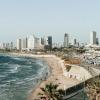


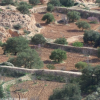
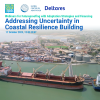

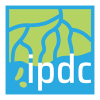

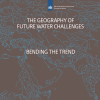

Trending Discussions
From around the site...
“Absolutely interested! I'll connect via email to discuss reviewing and enhancing the Economic Analysis of Climate...”
Adaptation-related events at COP28 (all available to follow/stream online)
“Please check out these adaptation-related events taking place at COP28 - all available online (some in person too if...”
Shining a light for biodiversity – four perspectives to the life that sustains us. Four hybrid sessions.
“30 November to 19 December 2023 - Four Sessions Introduction The SDC Cluster Green is happy to invite you to the...”